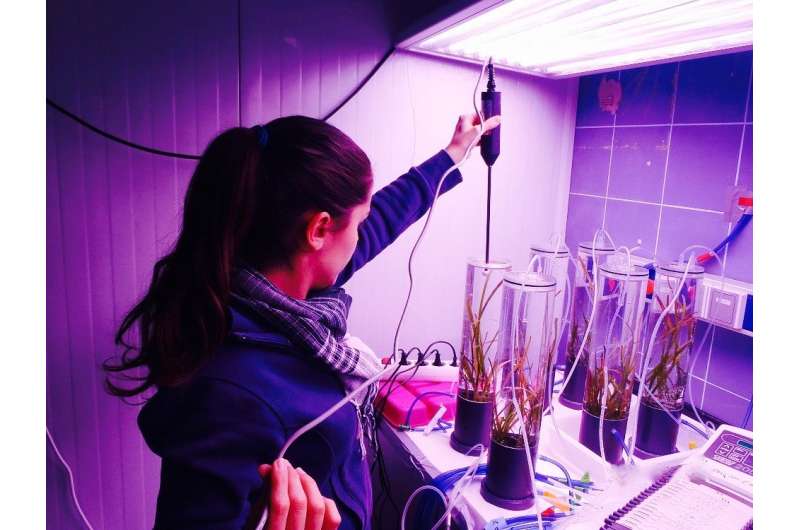Climate change causes alterations in marine phanerogamous populations

Marine angiospermas are a unique group of flowering plants that have adapted to live completely submerged in the sea for 40 million years. They form dense, productive grasslands and provide a wide range of ecosystem functions and services such as nutrient regeneration, improved water quality, coastal protection, breeding habitats (including economically relevant species) and CO2 burial. But as beneficial as they are to our environment, marine phanerogams are also among the world's most threatened ecosystems as a result of human pressure, with an annual global decline rate of 7% and nearly 14% of all species at risk of extinction.
Concern for these ecosystems has been growing over the years among the research community, in fact, at the University of Cadiz, scientists from the Department of Biology and belonging to the EDEA group, have published a study in the prestigious journal Plos One, in which they assess the effects produced by factors related to global change (such as rising temperatures and acidification) and local (eutrophication through increased ammonium concentrations) on a wide range of properties of Cymodocea nodosa marine angiosperm leaves, including structural, nutritional, biomechanical and chemical traits. In addition, throughout this work, the identification of new phenolic compounds for this species has been presented, becoming one of the most recent contributions to the chemical study of marine angiospermas.
The most significant results of this work show how climate change increases the consumption rates of marine plants by modifying the properties of their leaves. This finding suggests that a future scenario of global change could trigger major transformations in herbivorous processes in communities of marine angiospermas, with important implications for the resilience of the ecosystems formed by these plants.
This process is increasingly evidencing "the indirect effects that climate change can have on ecological processes. Our work brings new findings about the effect of this global change in the factors that regulate interactions between plants and their consumers,"explains the first author of this article and researcher at the UCA Rocía Jiménez-Ramos, which is very important to bear in mind for the future of these marine plants.
More information: Rocío Jiménez-Ramos et al. Global and local disturbances interact to modify seagrass palatability, PLOS ONE (2017). DOI: 10.1371/journal.pone.0183256
Journal information: PLoS ONE
Provided by Universidad de Cádiz




















